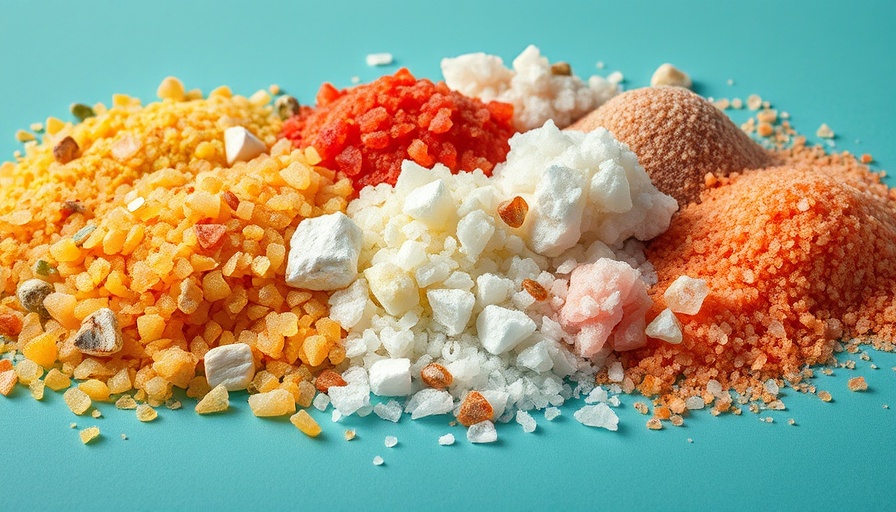
Understanding the Vital Role of Salt in Our Health
Salt is often seen as a guilty pleasure, but its significance in our diet cannot be overstated. Contrary to popular belief, salt is essential for various bodily functions. It helps maintain fluid balance, regulates nerve function, supports muscle contraction—including that of the heart—and contributes to adrenal function and stress responses. Notably, it plays a pivotal role in hydration. When we consider our hydration, many overlook the fact that consuming salt helps our bodies retain fluid. Without adequate sodium, hydration at a cellular level becomes inadequate, leading to dehydration despite drinking plenty of water. For parents trying to keep their families healthy, ensuring an adequate sodium intake, through balanced meals, is crucial.
Salt and Blood Pressure: The Misconceptions
A common concern individuals have regarding salt is its potential relationship with high blood pressure. However, it’s important to clarify that not all salt has the same impact. The misconception gained traction from research like the DASH-Sodium Trial, which primarily focused on vulnerable populations already sensitive to sodium. The campaign against salt didn’t consider lifestyle factors such as stress levels or diet quality, which significantly influence blood pressure. Parents and guardians should note that balanced nutrition, including sodium's role alongside potassium and magnesium, is crucial for maintaining healthy blood pressure levels. Rather than vilifying salt, our approach should be about balance.
The Essential Balance: Sodium, Potassium, and Magnesium
Our bodies thrive on a delicate balance of vitamins and minerals, where sodium, potassium, and magnesium play key roles. Consuming lower levels of potassium and magnesium can result in elevated blood pressure since these minerals counteract sodium's effects. Low sodium in the presence of high potassium and magnesium fosters a healthy equilibrium. This emphasizes the importance of a well-rounded diet, rich in these essential nutrients. Families should focus on incorporating foods that provide these vital minerals, fostering overall well-being instead of demonizing individual components like salt.
Practical Tips for Parents on Sodium Intake
For those managing households, ensuring appropriate sodium intake can be simple and effective. Start with incorporating natural food sources that contain balances of salt, potassium, and magnesium. Examples include leafy greens, fruits, and nuts. Being mindful of overly processed foods is also key, as they can contain high sodium levels that contribute to health issues. By focusing on whole foods and education about proper nutrition, parents can help their children cultivate healthy eating habits that last a lifetime.
Salt isn’t our enemy; instead, it serves as an essential nutrient that our bodies desperately need. Instead of seeing it as a threat, let’s recognize its value and incorporate it wisely in our diets for optimal health.
 Add Row
Add Row  Add
Add 




 Add Row
Add Row  Add
Add 


Write A Comment